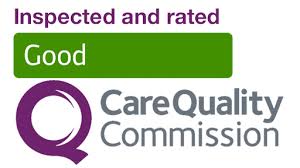Private ultrasound scans are an important and invaluable resource in cancer detection and subsequent treatment. Ultrasound techniques provide an effective means of detecting and diagnosing cancerous growths while providing patients opportunities to seek out and receive timely treatment. In this article, we will discuss the various benefits of private ultrasound scans for cancer detection and treatment.
Definition of ultrasound scan
Ultrasound scans, also known as medical sonography or ultrasonography, are non-invasive imaging techniques used to create images of internal organs and structures of the body. These scans are done using high frequency sound waves which are then transformed into a picture by a computer. Ultrasound imaging has become an invaluable tool in both diagnosing and treating cancer because it allows doctors to see into the body without making an incision or using potentially dangerous radiation.
Ultrasound scans can be performed either with transducers (also known as probes) placed on the skin’s surface or through an endoscopic method, in which probes can be inserted into small incisions within the body. The endoscopic procedure is generally used for more detailed visualization inside organs like the lungs, intestines, ovaries and uterus; whereas surface ultrasound is usually used for examining joints and muscles and for scanning larger abdominal organs such as the liver, kidneys and gallbladder.
The primary benefit of ultrasound imaging is its ability to generate images that show both anatomy and physiology of tissues. When conducting private ultrasounds associated with cancer diagnosis or treatment, your doctor may ask you to perform certain activities that help provide visual data on how well your tissues respond to a particular treatment plan or how quickly they may be progressing.
Overview of ultrasound scans in cancer detection and treatment
Ultrasound scans, also called sonography, are a type of medical imaging technology utilized to create images of organs including the uterus, ovaries, prostate and even some types of cancer. This type of imaging is used in diagnosis and treatment by providing medical professionals with detailed information on the size, shape and functional capacity of organs which can detect development issues that may indicate the presence of cancer. Ultrasound scans can also be used during many treatments to make sure nothing is missed or has been overlooked.
The use of ultrasound scans for the detection and treatment of cancer has risen in importance over the last few decades due to its accuracy and affordability. With an ultrasound scan, it is possible to detect very small tumors or indications that may have otherwise gone unnoticed with other types of scanning technologies. Often these smaller tumors will not show up on conventional X-rays or CT scans as they are too small or too deep within an organ. This makes private ultrasound scanning essential when attempting to diagnose certain cancers such as prostate cancer in men, ovarian cancer in women, breast cancer and other forms of cancers that can affect both genders.
Ultrasound scanning can also be beneficial during many cancer treatments such as:
- Chemotherapy (which uses drugs to kill toumor cells)
- Radiation therapy (which utilizes beams like X-rays)
- Hormone therapy (in which hormones are prescribed as part of a treatment plan)
- Other forms surgery.
Additionally, an ultrasound scan prior to medication use may give important clues about how a tumour might respond to treatment before it begins thus eliminating potential side effects caused by medications that were unnecessary for treating the toumor initially identified through a private ultrasound scan.
Benefits of Private Ultrasound Scans
Private ultrasound scans can play an important role in the early detection and treatment of cancer. This is because they offer a much more detailed look at the inside of the body than a traditional ultrasound scan. With ultrasound scans, professionals can detect tumours or other abnormal areas in the body, which can be crucial for early detection and treatment of cancer.
In this article, we'll take a look at the benefits of private ultrasound scans for cancer detection and treatment:
Access to advanced technology
Private ultrasound scans are a powerful tool for cancer detection and treatment. Having access to the latest available technology can make a world of difference in diagnosis accuracy and early treatment options.
The use of private ultrasound scans offers patients access to advanced imaging technologies that they may not have had access to in the past. This allows doctors to utilize various imaging techniques such as three dimensional (3D) models and cross sectional images, providing highly detailed images of the body’s organs, blood vessels and other structures.
3D ultrasounds provide an even more comprehensive assessment of parts of the body by allowing doctors to rotate images around various angles. These images also provide valuable information regarding vascularity – how visible or “lush” blood vessels are – which may indicate how aggressive a cancer may be or how likely it is to spread quickly throughout the body. In some cases, 3D ultrasounds can also give doctors better insight into tissue structure and can help determine the depth of tumors for more precise treatments such as radiation therapy or surgery.
Private ultrasound scans also give patients much-needed peace of mind when facing a diagnosis for cancer or any other condition requiring scanning services, as they are typically performed by highly trained medical professionals at facilities equipped with state-of-the-art equipment. Private ultrasound scans can provide patients with potentially life saving results while offering an enhanced level of comfort and convenience when compared to government funded health care options.
Quicker results
Private ultrasounds provide quicker results than those done in most hospitals or clinics. For example, in some cases, private scans can be completed and analysed within 48 hours, while a patient can wait up to two weeks for results from public systems. Quicker results mean a patient doesn’t have to wait weeks more for diagnosis and treatment plans. This is especially important for cancer diagnosis, as early diagnosis and timely intervention can have a great impact on the patient’s outcome.
Private ultrasound services also help individuals detect potential health problems early on. This is critical since regular screenings increase the chances of detecting any abnormality at an earlier stage— when treating it may be easier or even possible. Moreover, without regular scans, many dangerous or life-threatening conditions could remain undiscovered and untreated until symptoms become more serious or even life-threatening. Private ultrasound is becoming increasingly popular form of healthcare as people prefer faster and more accurate medical imaging technologies that offer quick access to healthcare professionals who are solely devoted to their clients’ wellbeing.
More accurate diagnosis
Private ultrasound scans are an invaluable tool for early cancer detection, risk reduction and treatment planning. Unlike traditional CAT scans or X-rays, ultrasound scanners produce 3D images of the internal structures of a patient’s body, making them far more accurate than traditional diagnostic tools. Private clinics and hospitals often use advanced ultrasounds that can detect medical conditions such as polyps, cysts, tumors and fibroids at an early stage – before they become apparent with CT or X-ray scans.
A private ultrasound scan can provide your doctor with a detailed map of different parts of your body that can help diagnose medical issues and diseases such as cancer in its early stages, which means treatment can begin as soon as possible to increase the chances of survival. With more accurate diagnosis tools like private ultrasounds, doctors are able to estimate tumour growth and spread precisely so that treatment plans are tailored to the patient’s specific illness. Private scans also allow the clinicians to make informed decisions about further testing or treatment much faster than CT or X-ray scanners.
Early detection through regular screenings is key for reducing mortality rates related to many types of cancer – making private ultrasound scans indispensable for patients seeking quality care and optimal outcomes.
Potential Risks of Private Ultrasound Scans
Private ultrasound scans are often used to detect and treat cancer, but they may also carry some risks. It is important to understand the potential risks of private ultrasound scans before considering them. This section will explore the possible risks of private ultrasound scans.
Some of the risks may include:
- Radiation exposure
- Incomplete diagnostics
- Misdiagnosis
Cost
The cost of a private ultrasound scan can vary greatly, depending on which provider you choose and what type of procedure you require. Generally speaking, basic ultrasound exams can range from approximately £100 to £400. Some providers may also charge an additional fee for access to the images or a comprehensive report. On average, specialized ultrasounds such as endovaginal scans can range from £150 to £800.
It’s important to research your options carefully and ask about any extra fees before you make your appointment with a provider.
It's also important to keep in mind that some medical insurance policies include coverage for private ultrasound scans but the coverage and co-pays will vary. Check with your insurer ahead of time so that you have an accurate idea of what you can expect in terms of out-of-pocket expenses before undergoing a scan. Additionally, assume that even if the cost is covered by insurance, there may still be other charges that are due before or after the procedure is completed:
- Research your options carefully and ask about any extra fees.
- Check with your insurer ahead of time for an accurate idea of what you can expect in terms of out-of-pocket expenses.
- Assume that even if the cost is covered by insurance, there may still be other charges that are due before or after the procedure is completed.
Limited availability
The availability of private ultrasound scans can be limited for a number of reasons. In some cases, private practitioners may not be appropriately trained to conduct ultrasounds, or may not have access to the necessary equipment. Additionally, economic factors can limit access as private scans are often more expensive than those available through hospitals or clinics. As such, it is always important to research options both in terms of quality and cost before undergoing a scan.
Additionally, while the advancement of ultrasound technology allows for earlier detection and diagnosis of cancer, there are potential risks associated with this type of scan. A regulation by the United States Food and Drug Administration (FDA) requires all ultrasound imaging machines used domestically to feature the appropriate safety protocols and designs to ensure patient safety during use. However, improper use on behalf of an unfamiliar provider could result in harm or unintended consequences due to inadequate training or equipment malfunctioning. Therefore, it is best practice for patients to:
- Seek care from an experienced provider prior to undergoing such procedures.
Potential for inaccurate results
Although ultrasounds can be used to aid in the initial screening of a wide range of conditions, the accuracy of a private ultrasound is only as good as the patient’s provider. This is especially true when it comes to cancer diagnostics, where results may come back inconclusive or inaccurate.
The potential for an inaccurate result increases with the complexity of the diagnosis and the number of different types of imaging tests that need to be done. In addition, experienced providers may be able to use sophisticated equipment and specialized techniques for diagnosing complex cases or for follow-up imaging that can lead to more accurate results.
Some areas that are particularly prone to inaccurate results include:
- Diagnosis and treatment decisions made based on images from lower quality scans (such as done in home settings).
- If a scan is carried out in a home setting, it may not provide enough clarity or information needed for an accurate diagnosis, requiring additional diagnostic testing with medical-grade ultrasound machines.
- Inexperienced technicians do not have adequate training on interpreting scans properly or do not have access to experienced radiologists or physicians with experience in this field.
Patients should consult their healthcare provider prior to scheduling a private ultrasound scan to ensure that the imaging center has proper technology and skilled personnel who can properly interpret and relay information from the scan for an accurate result.
Conclusion
Private Ultrasound scans are an important part of cancer detection and treatment. They allow healthcare professionals to quickly and accurately diagnose and monitor cancer, allowing for early detection and improved patient outcomes. Private Ultrasound scans also provide additional information, such as specific organ imaging, which can lead to more precise treatments for individual patients.
In summary, private ultrasound scans are invaluable tools for the early detection and effective treatment of cancer.
Summary of the benefits and risks of private ultrasound scans
Private ultrasound scans offer some potential advantages compared to traditional cancer treatments. The use of ultrasound allows for diagnostic procedures that involve direct imaging of a tumour or mass, thus providing valuable insight into the stage of a particular cancer. Ultrasound-guided biopsies also allow doctors to collect tissue samples without requiring a general anaesthetic, reducing the risk associated with such procedures. Private ultrasound scans can also provide information regarding blood vessels in and around tumours which can be useful in the development of targeted treatments and drug delivery protocols.
On the other hand, there are several potential risks associated with private ultrasound scans that must not be overlooked. If a scan is conducted incorrectly or at too high an intensity, it can lead to various forms of tissue damage including discomfort and burns. Additionally, as with any form of radiography, prolonged exposure can increase patients' exposure to radiation which can further increase the risk for potential harm including long-term illnesses such as cancer itself.
Overall, private ultrasound scans provide valuable insights into cancer diagnosis and treatment but should be conducted by experienced professionals who are knowledgeable about their safe and effective use. As with all medical decisions it is important for individuals to carefully weigh the costs and benefits before consulting an ultrasound specialist about their individual needs and concerns.










